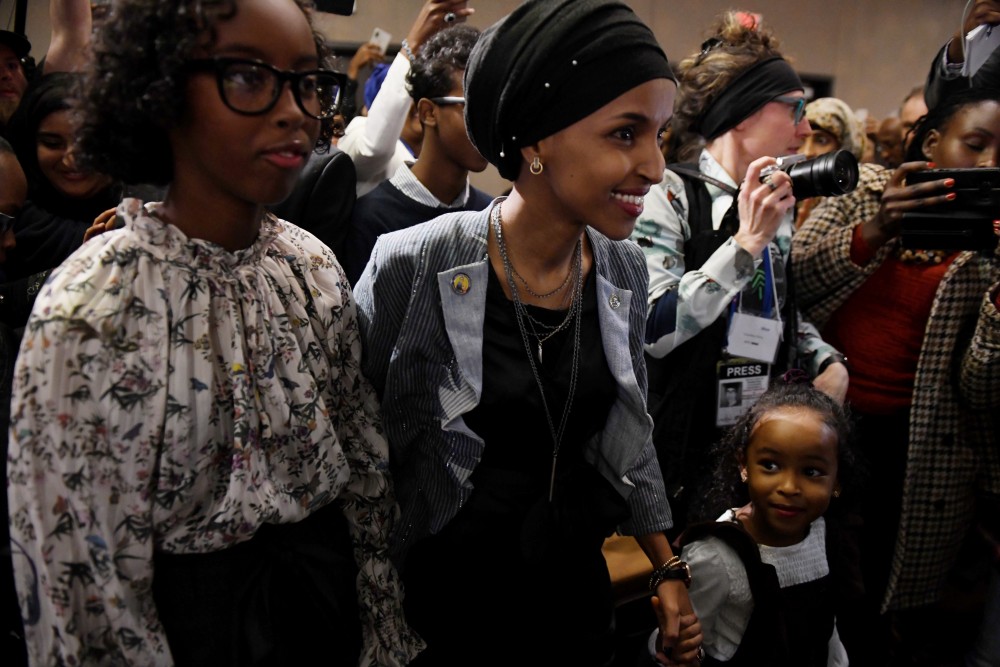As controversy surrounding U.S. Rep. Ilhan Omar, D-Minn., grows, University of Minnesota students are participating in the debate surrounding the first Somali-American elected to the U.S. House of Representatives.
In February, Omar tweeted her criticism of America’s support of Israel and implied it was motivated by money. This generated allegations of anti-Semitism and angered both sides of the aisle. On April 12, President Donald Trump spread a video on Twitter that purports to show Omar downplaying the 9/11 attacks. The video combined footage of the World Trade Center burning with Omar describing the attack as “Some people did something.”
Since then, Omar has reported an increase in death threats, and University students have staunchly defended her. Others have been more hesitant to show support, and some have called for the congresswoman’s resignation.
Asha Muse, a second-year sociology major, said she thinks Omar has been subjected to scrutiny to reinforce stereotypes about Muslims.
“They’re using her identity against her,” Muse said. “Just because they know that she is part of some marginalized group, they’re using those stereotypes to make her lesser than her counterparts … even though she is a congresswoman.”
For Todd Green, an associate professor of religion at Luther College and author of multiple books addressing Islamophobia, Omar’s remarks speak more to Islamophobia than to anti-Semitism.
“There is a stereotype … which is the notion of the Jew-hating Muslim, that Muslims by default hate Jews and are hostile towards Jews,” Green said. “Therefore, anything they say [that is] critical about Israel is going to be taken with extra amounts of hostility.”
Although many University students condemned Trump’s tweet, the line was less clear-cut for some when it came to discussing Omar’s comments about Israel.
“I found some of her comments problematic,” said third-year student Megan Robbins. “But I like the fact that she came out and acknowledged that.”
Though critical of Omar’s language, Robbins said there is a place for Omar to make comments about Israel. “I think she can talk about the government as a whole … without using language that is offensive to Jewish people,” Robbins said.
However, Muse said it is important not to conflate criticisms of the Israeli government with anti-Semitic sentiment.
“People have made that equivalent, calling out the Israeli government and hating Jews, which doesn’t make sense. You can call out a government because that’s a system that is oppressing and violating human rights,” Muse said.
Fourth-year physics major Dawson Kimyon also said Omar’s words tend to be subjected to skepticism because she is Muslim. Omar is called out for comments that would typically be dismissed if other left-wing Congress members said them, he said.
“As a black Muslim woman, everything she says is scrutinized and heard … in a way that already assumes inherently that because she’s a Muslim, she must be anti-Semitic,” Green said. “Her remarks are being interpreted in the worst possible way, and that’s part of what’s going on.”
Second-year student Ramla Mohamud said the attacks Omar has received for her opinions show people have only accepted Omar as a token.
“They would love for her to … make us all feel good that we live in a progressive country — that someone can come and be a refugee and make it to the halls of Congress. And we would love for her at that point not to say anything controversial,” Kimyon said.








